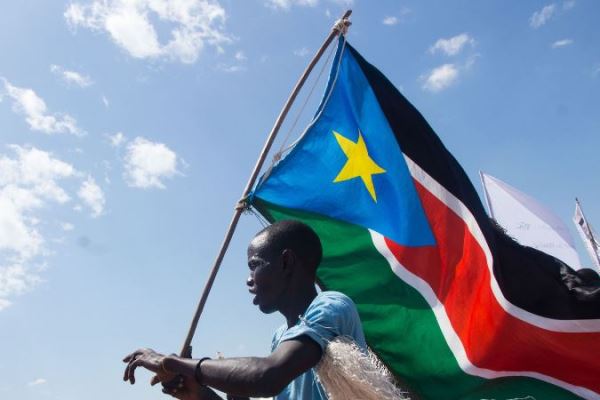Expedite formation of transitional justice mechanisms in S. Sudan
December 13, 2021 (JUBA) – South Sudan government should expedite operationalization of the transitional justice mechanisms as per the cabinet’s approval of a plan to set up accountability mechanisms in the country, human rights defenders said Friday.
The call came as the world marked International Human Rights Day under the theme, “Reducing inequalities, advancing human rights”.
Commemorated globally every December 10, International Human Rights Day honours the United Nations General Assembly‘s adoption and proclamation on 10 December 1948, of the Universal Declaration of Human Rights (UDHR), the first global enunciation of human rights and one of the first major achievements of the UN.
Speaking during the occasion on Friday, Irena Angelova from the human rights division of the UN Mission in South Sudan (UNMISS) reiterated the role independent national human rights institutions and civil society entities play in human rights protection and promotion.
“Towards this end, I continue to call for a conducive and independent civic space as well as a protective environment for human rights defenders and civil society activists in South Sudan to effectively execute their human rights mandate,” she said.
Gideon Beny Mabor, a Commissioner at South Sudan Human Rights Commission (SSHRC) stressed that the principles of equality and non-discrimination are enshrined in the Transitional Constitution of the Republic of South Sudan 2011 as amended under Article 14.
“All persons are equal before the law and are entitled to the equal protection of the law without discrimination as to race, ethnic origin, colour, sex, language, religious creed, political opinion, birth, locality or social status,” explained Beny.
He said SSHRC remains committed to discharging its constitutional mandate in line with the Paris Principles, the constitution and the law, calling upon government at all levels to discharge state obligation to respect, fulfil and promote human rights and fundamental freedoms.
For his part, James Bidal, the secretariat head of South Sudan Human Rights Defenders Network (SSHRDN), called for the opening up of civic space to enable the exercise of fundamental and democratic rights.
“It is within this realm that the right to peacefully assembly, associate and express views and opinions are reflected,” he explained.
Bidal said SSHRDN has worked closely with the South Sudan Human Rights Commission (SSHRC) and the Human Rights Division of the UN Mission in South Sudan (UNMISS) to mainstream protection of universal human rights and enjoyment of all rights by members of the society.
“We must advance measures to close any gap that infringes the enjoyment of rights and reinforce efforts that promote the protection of rights to enable us to fully recover and build back South Sudan that is better, where human rights are respected, more resilient, just, and sustainable for its citizens,” he stressed.
The rights defender urged South Sudan to adopt a strategic agenda of priority areas for long term actions to improve human rights.
(ST)

